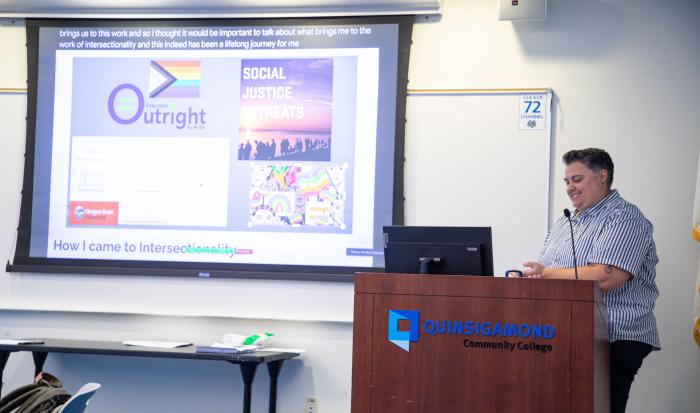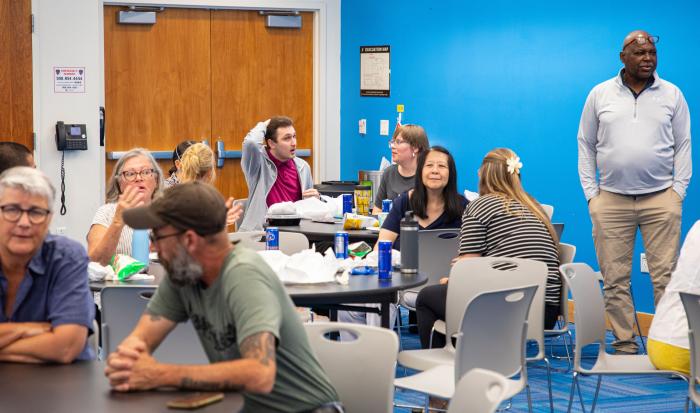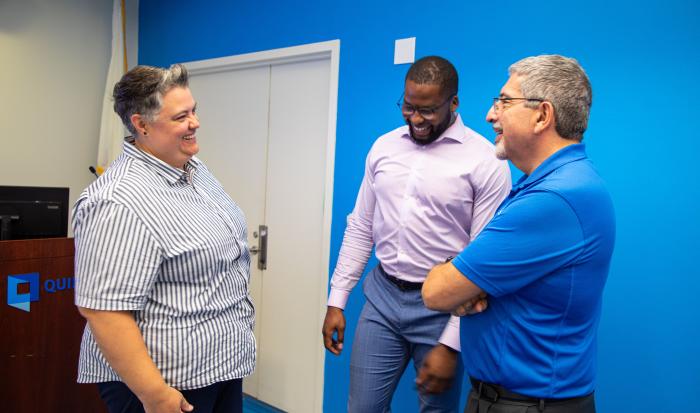


Last month, the QCC community had the privilege of attending an enlightening workshop on intersectionality and its crucial role in higher education. Led by Dr. NTG, professor of Practice in Higher Education and Social Justice Education and Coordinator for Social Justice Education at UMass Amherst, the session provided valuable insights into the complexities of identity and the importance of inclusive dialogue.
Dr. NTG opened the workshop by sharing their personal journey, which began with coming out at age 15 and becoming involved in queer activism. However, it was their experience as a leader of students at Oregon State University that truly opened their eyes to the systemic inequities in higher education, particularly for people of color. From this point on, NTG focused their work on merging the two worlds of LGBTQ+ services with racial justice and enabling dialogue between various groups of identities.
The workshop introduced participants to the concept of intersectionality, a term coined by Kimberlé Crenshaw. In a video that was shown, Crenshaw explained that intersectionality is a metaphor for understanding how multiple forms of inequality can compound themselves and this framework is a lens through which to understand and solve problems.
Participants engaged in paired discussions, exploring their interests and how intersectionality could inform their understanding of various issues. The urgency of addressing intersectionality in higher education was underscored by audience contributions, citing concerns such as recent legislation, freedom of thought, and the potential dangers faced by marginalized groups.
Dr. NTG presented real-word case studies that participants tackled in groups to see how an intersectional lens can help solve problems that have occurred at higher education institutions. The workshop concluded with a personal action planning session, encouraging attendees to apply their newfound knowledge in their daily lives and work.
As our community continues to grapple with complex social issues, the lessons learned from this session will help foster a more equitable and understanding environment for all.
